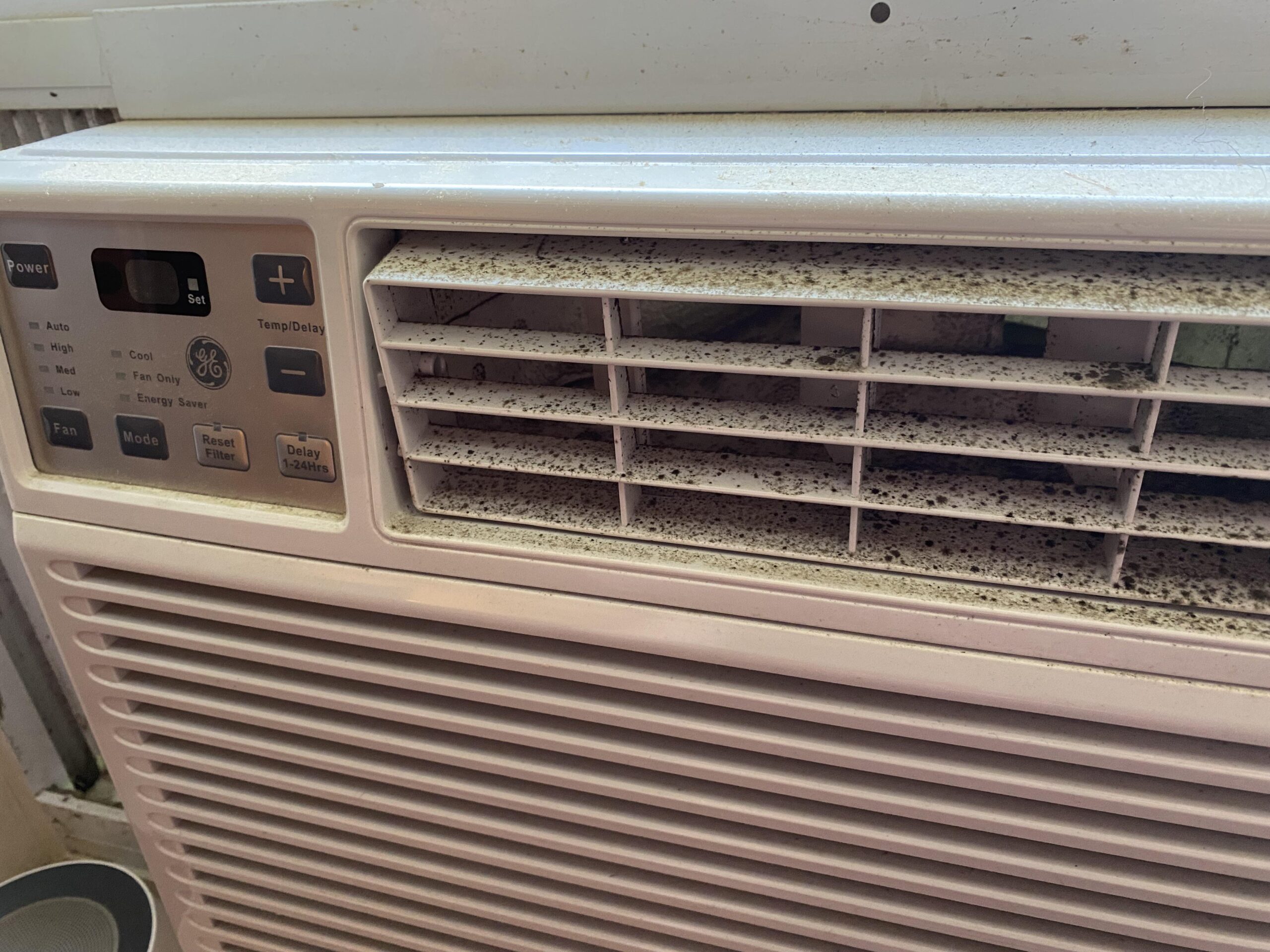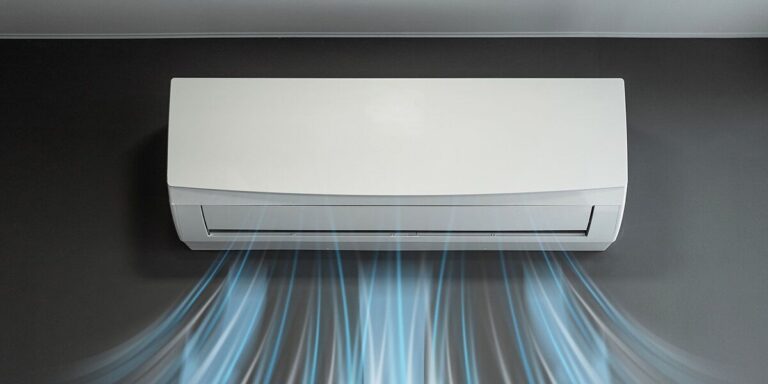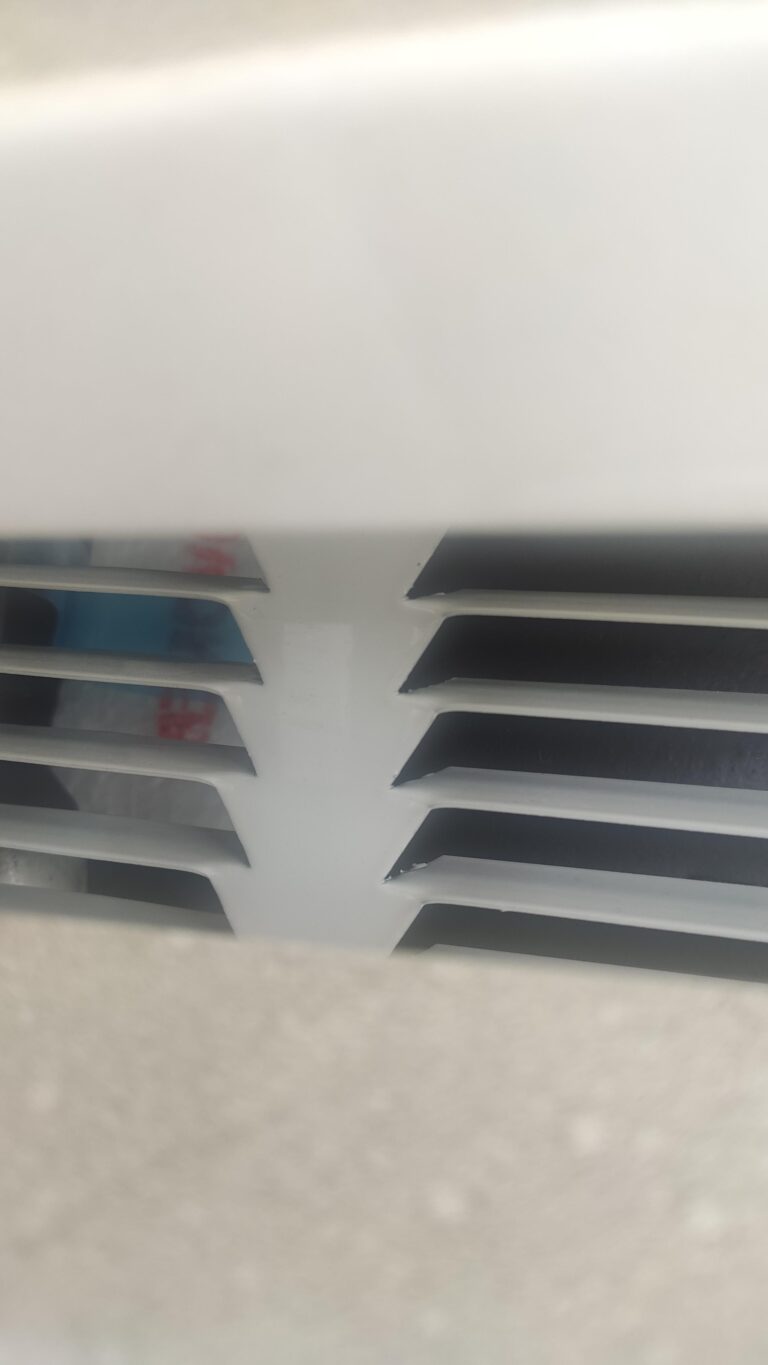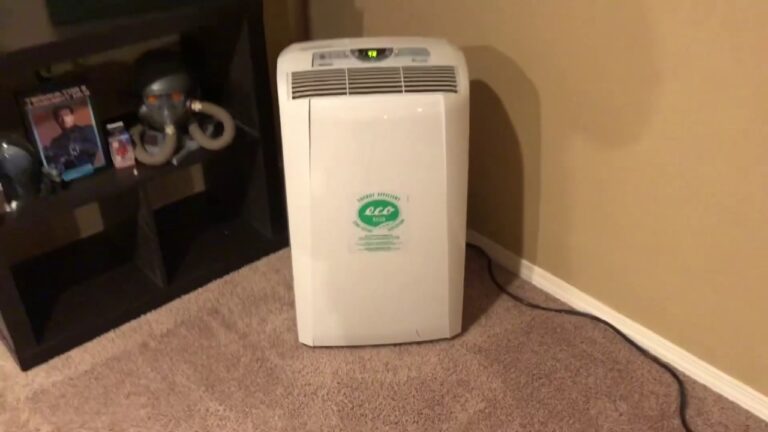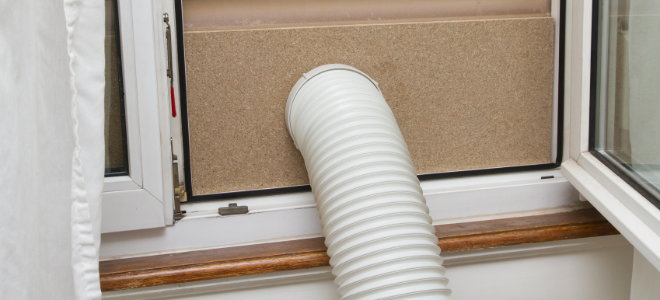Can You Get Legionnaires Disease From A Window Air Conditioner?
Yes, you can get Legionnaires’ disease from a window air conditioner. This happens if the unit is contaminated with Legionella bacteria.
Legionnaires’ disease is a severe form of pneumonia caused by inhaling water droplets contaminated with Legionella bacteria. Window air conditioners can become breeding grounds for these bacteria if they are not properly maintained and cleaned. Stagnant water within the unit can create an ideal environment for bacterial growth.
Regular cleaning and maintenance of the unit, including filters and water reservoirs, are essential to prevent contamination. Ensuring that the air conditioner is free from standing water can significantly reduce the risk of Legionnaires’ disease. Proper hygiene and regular inspections can help keep your window air conditioner safe and efficient.

Credit: www.rileyersoff.com
What Is Legionnaires’ Disease?
Legionnaires’ Disease is a severe type of pneumonia. It’s caused by the Legionella bacteria. This bacteria grows in water systems. It is not contagious. People get it by inhaling mist or water droplets containing the bacteria.
Symptoms And Risks
The symptoms of Legionnaires’ Disease are much like the flu. They include:
- High fever
- Muscle aches
- Cough
- Shortness of breath
- Headache
Some people are at higher risk. These people include:
- Older adults
- Smokers
- People with weak immune systems
- People with lung diseases
Common Sources
The Legionella bacteria thrive in water systems. Common sources include:
- Hot tubs
- Cooling towers
- Large plumbing systems
- Decorative fountains
It is rare to get Legionnaires’ Disease from home air conditioners. These units don’t use water to cool the air.
| Source | Risk Level |
|---|---|
| Hot Tubs | High |
| Cooling Towers | High |
| Home Air Conditioners | Low |

Credit: www.aruplab.com
How Legionnaires’ Disease Spreads
Legionnaires’ Disease is a severe form of pneumonia. It is caused by the Legionella bacteria. Understanding how this disease spreads is crucial for prevention. The bacteria thrive in water and can become airborne. Here’s how the disease spreads:
Waterborne Bacteria
The Legionella bacteria live in water. They can be found in lakes, rivers, and hot springs. The bacteria also thrive in man-made water systems. These include hot tubs, cooling towers, and large plumbing systems.
Once the bacteria find a suitable water source, they multiply. Warm temperatures between 20°C and 50°C encourage their growth. Stagnant water further aids their multiplication.
| Water Source | Risk Level |
|---|---|
| Natural Water Bodies | Low |
| Hot Tubs | High |
| Cooling Towers | High |
| Large Plumbing Systems | Moderate |
Airborne Transmission
The bacteria can become airborne through small water droplets. This process is called aerosolization. When these droplets are inhaled, they can cause infection. Devices like cooling towers and humidifiers can release these droplets into the air.
Window air conditioners generally do not pose a high risk. They do not use water in their cooling process. Yet, if they are poorly maintained, they can collect dust and moisture. This can still create a breeding ground for various bacteria.
Maintaining clean and dry air conditioners is crucial. Regularly changing filters can prevent bacterial growth. Always ensure proper ventilation in rooms using air conditioners.
- Regular maintenance of air conditioners
- Keeping water systems clean and disinfected
- Ensuring good ventilation in indoor spaces
Role Of Air Conditioning Systems
Air conditioning systems play a key role in maintaining indoor air quality. They provide comfort by regulating temperature and humidity. But, they can also be sources of certain health risks. One such risk is Legionnaires’ disease, caused by Legionella bacteria.
Centralized Hvac Systems
Centralized HVAC systems serve multiple rooms or spaces. They are often used in large buildings. These systems can become a breeding ground for Legionella bacteria. The bacteria thrive in warm water environments. Cooling towers and evaporative condensers in HVAC systems can harbor this bacteria. Regular maintenance is crucial for safety.
Key points about centralized HVAC systems:
- Serve multiple rooms or spaces
- Used in large buildings
- Can harbor Legionella bacteria
- Regular maintenance needed
Window Air Conditioners
Window air conditioners are smaller units. They cool individual rooms or small spaces. These units are less likely to harbor Legionella bacteria. This is because they don’t have cooling towers or condensers. But, they can still pose risks if not maintained properly.
Key points about window air conditioners:
- Cool individual rooms or small spaces
- Less likely to harbor Legionella bacteria
- Do not have cooling towers or condensers
- Proper maintenance is still important
Comparing centralized HVAC systems and window air conditioners:
| Feature | Centralized HVAC Systems | Window Air Conditioners |
|---|---|---|
| Area Served | Multiple rooms or spaces | Individual rooms |
| Legionella Risk | Higher | Lower |
| Maintenance Importance | Very High | High |
Window Air Conditioners And Legionella
Window air conditioners are common in homes. They help keep us cool. But can they cause Legionnaires’ disease? Legionnaires’ disease is a type of pneumonia. It is caused by Legionella bacteria. Let’s explore if window air conditioners pose any risk.
Potential Risks
Legionella bacteria live in water. They thrive in warm water environments. Cooling towers and hot tubs are common places for Legionella. But what about window air conditioners?
- Window air conditioners have water trays. Water collects there from condensation.
- If the trays are not cleaned, bacteria can grow.
- Legionella can spread through mist or vapor.
- People can inhale this mist and get infected.
So, dirty water trays in window air conditioners can be risky.
Preventive Measures
Keeping your window air conditioner clean is crucial. Here are some simple steps:
- Clean the water tray regularly.
- Use a disinfectant to kill bacteria.
- Change filters often. Dirty filters can harbor bacteria.
- Ensure proper drainage. This prevents water from stagnating.
Regular maintenance reduces the risk of Legionella. A clean air conditioner is safer and works better.
| Task | Frequency |
|---|---|
| Clean Water Tray | Monthly |
| Change Filters | Every 3 months |
| Use Disinfectant | Monthly |
| Check Drainage | Monthly |
Following these steps can keep your home safe. It ensures your window air conditioner does not harbor Legionella.
Case Studies And Incidents
Exploring case studies and incidents can reveal the real-world impact of Legionnaires’ disease. Specifically, we focus on the potential risks associated with window air conditioners. These cases highlight the importance of proper maintenance and awareness.
Documented Cases
Several documented cases show the link between window air conditioners and Legionnaires’ disease. In one case, a family of four fell ill after using an old window air conditioner. The unit had not been cleaned for years. Tests revealed Legionella bacteria inside the unit.
Another case involved an office building. Many employees reported respiratory issues. The investigation traced the problem to a poorly maintained window air conditioner. Legionella bacteria were present in the condensation tray.
| Case | Location | Outcome |
|---|---|---|
| Family Illness | Residential Home | All family members recovered after treatment |
| Office Outbreak | Office Building | Building had to replace and clean all units |
Lessons Learned
These cases teach valuable lessons. Regular maintenance of window air conditioners is crucial. Cleaning and disinfecting can prevent Legionella growth.
- Schedule regular cleanings for your air conditioner.
- Check and clean the condensation trays often.
- Replace old units to avoid bacterial buildup.
Following these steps can significantly reduce the risk of Legionnaires’ disease. Keeping air conditioners clean helps ensure safe air quality.
Maintenance And Safety Tips
Maintaining your window air conditioner is essential for preventing Legionnaires’ disease. These simple tips can help keep you and your family safe. Follow these guidelines to ensure your unit is clean and properly installed.
Regular Cleaning
Regular cleaning of your window air conditioner is crucial. Dirt and dust can accumulate inside the unit. This can create a breeding ground for bacteria.
- Clean the filter every month. A dirty filter can trap moisture and bacteria.
- Use a vacuum with a brush attachment to remove dust from the coils.
- Disinfect the drip tray to prevent mold and bacteria growth.
A clean unit reduces the risk of Legionnaires’ disease. Make sure all parts are dry after cleaning.
Proper Installation
Proper installation of your window air conditioner is just as important as regular cleaning. Incorrect installation can cause leaks and moisture buildup.
- Ensure the unit is level to prevent water pooling.
- Check the seals around the unit. Gaps can let in moisture.
- Follow the manufacturer’s instructions for installation. This ensures the unit works correctly.
Proper installation minimizes the risk of bacteria growth. It also helps the unit run more efficiently.
| Task | Frequency |
|---|---|
| Clean filter | Monthly |
| Vacuum coils | Monthly |
| Disinfect drip tray | Monthly |
| Check seals | Yearly |
Expert Opinions And Recommendations
Are you worried about getting Legionnaires’ disease from your window air conditioner? Experts have shared their opinions and recommendations. Understanding their insights can help you stay safe and informed.
Healthcare Professionals
Doctors and other healthcare professionals often get questions about Legionnaires’ disease. They explain that this disease is caused by Legionella bacteria. These bacteria thrive in water systems, such as hot tubs, cooling towers, and large plumbing systems.
Is your window air conditioner a risk? Healthcare experts say it’s unlikely. Window air conditioners do not use water to cool the air. Hence, the chance of Legionella bacteria growing in them is very low.
To stay safe, healthcare professionals suggest regular maintenance. Clean your air conditioner filters and vents. This practice helps prevent any bacteria or mold growth.
Hvac Technicians
HVAC technicians also play a key role in addressing these concerns. They agree with healthcare professionals. Window air conditioners are generally safe from Legionnaires’ disease.
Technicians emphasize the importance of proper installation and maintenance. They recommend the following steps:
- Use a high-quality filter to trap dust and pollutants.
- Clean the unit regularly to avoid buildup of dirt and debris.
- Check for and fix any leaks that could create moisture.
- Ensure proper ventilation to reduce humidity levels.
HVAC technicians also suggest using air purifiers. These devices can further enhance indoor air quality. Although the risk of Legionnaires’ disease from window air conditioners is low, it’s always good to be cautious.

Credit: www.rileyersoff.com
Frequently Asked Questions
Can Window Ac Units Cause Legionnaires?
Window AC units rarely cause Legionnaires’ disease. They lack the water reservoir needed for Legionella bacteria to grow. Regular maintenance helps ensure safety.
Can My Window Air Conditioner Make Me Sick?
Yes, a window air conditioner can make you sick if it’s not cleaned regularly. Dirty units can spread allergens, mold, and bacteria.
How To Prevent Legionella In Air Conditioning?
Regularly clean and disinfect cooling towers and HVAC systems. Maintain water temperatures outside Legionella growth range (20-50°C). Ensure proper water treatment. Implement routine monitoring and maintenance schedules. Use biocides as necessary.
Conclusion
Window air conditioners can harbor Legionella bacteria if not maintained properly. Regular cleaning reduces this risk significantly. Ensure filters and water trays are clean. Proper maintenance keeps your air conditioner safe. Stay vigilant to protect your health and enjoy cool, clean air.

